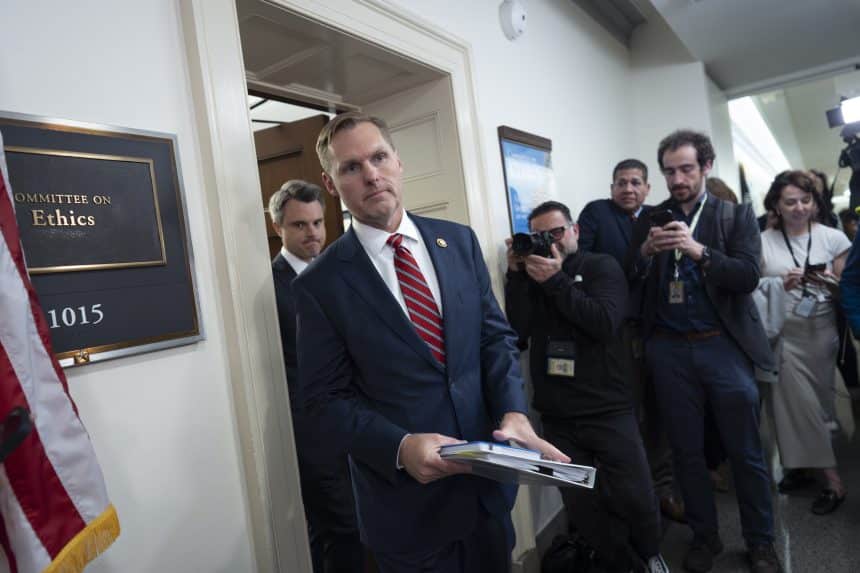In the aftermath of the House Ethics Committee’s report released on former Rep. Matt Gaetz, which details a trove of alleged payments for sex and drugs, the panel’s chairman has come out saying he was not one of the votes in favor of releasing the committee’s findings.
Rep. Michael Guest (R-Miss.), who has been in charge of the committee for over a year now, issued a press release Monday. In it, the chairman said that while he did not disagree with what was included in the report on Gaetz (R-Fla.), he believes the committee should have withheld it from the public eye considering Gaetz is no longer a member of Congress.

“I believe, have publicly stated, and remain steadfast in the position that the House Committee on Ethics lost jurisdiction to release to the public any substantive work product regarding Mr. Gaetz after his resignation from the House,” Guest wrote. “While I do not challenge the Committee’s findings, I did not vote to support the release of the report and I take great exception that the majority deviated from the Committee’s well-established standards and voted to release a report on an individual no longer under the Committee’s jurisdiction, an action the Committee has not taken since 2006.”

As Guest pointed out, Gaetz resigned last month after President-elect Donald Trump nominated him for the position of U.S. Attorney General. With swift backlash pouring in, as Gaetz had previously been the subject of a Justice Department investigation over the alleged misconduct and illicit drug use, Gaetz withdrew his name after meeting with senators in an attempt to garner enough support to be confirmed when the new administration takes over in January.
Guest also pointed to an instance nearly two decades ago in which the House Ethics Committee released the results of its investigation into Rep. Mark Foley (R-Fla.) even though Foley was no longer in Congress. The committee is said to not have jurisdiction over former members, which pushed Guest to call Monday’s move “a dangerous departure with potentially catastrophic consequences.”
“Representative Gaetz resigned from Congress, withdrew from the consideration to serve in the next administration, and declared that he would not be seated in the 119th Congress,” Guest continued. “The decision to publish a report after his resignation breaks from the Committee’s long-standing practice and is a dangerous departure with potentially catastrophic consequences.”
While, according to Guest, the House Ethics Committee does not have jurisdiction over former members or private citizens, Democrats on the panel argued it needed to see the light of day since Gaetz was initially up for a cabinet position and the alleged misconduct happened while he was serving the voters of Florida who put him in office. Republicans, on the other hand, argued the release was a weaponization of the committee’s duties to watch over members of Congress and their behaviors.
The panel, which is split evenly between Republicans and Democrats, needed one GOP vote to break the tie after a late November vote to release the report failed. A recent December “secret vote” pulled at least one crossover vote to open the door for the release, although the full list of how members voted has not been released outside of Guest publicly confirming he was not one of them. Others, such as Democrats on the committee, have publicly said they were in favor of releasing the report.
RELATED: Inside the Gaetz ethics report, panel members detail alleged payments for sex and drugs
Gaetz, who unsuccessfully filed an eleventh-hour lawsuit to block Monday’s report, quickly went to social media to further proclaim his innocence. Even with the Justice Department not filing any charges against the ex-congressman, the report asserted that “substantial evidence” proves Gaetz engaged in “prostitution, statutory rape, illicit drug use,” and obstruction of Congress.
“Giving funds to someone you are dating – that they didn’t ask for – and that isn’t ‘charged’ for sex is now prostitution?!?” Gaetz wrote in a series of X posts with snippets of witness testimony he believes refuted the committee’s findings. “There is a reason they did this to me in a Christmas Eve-Eve report and not in a courtroom of any kind where I could present evidence and challenge witnesses.”







